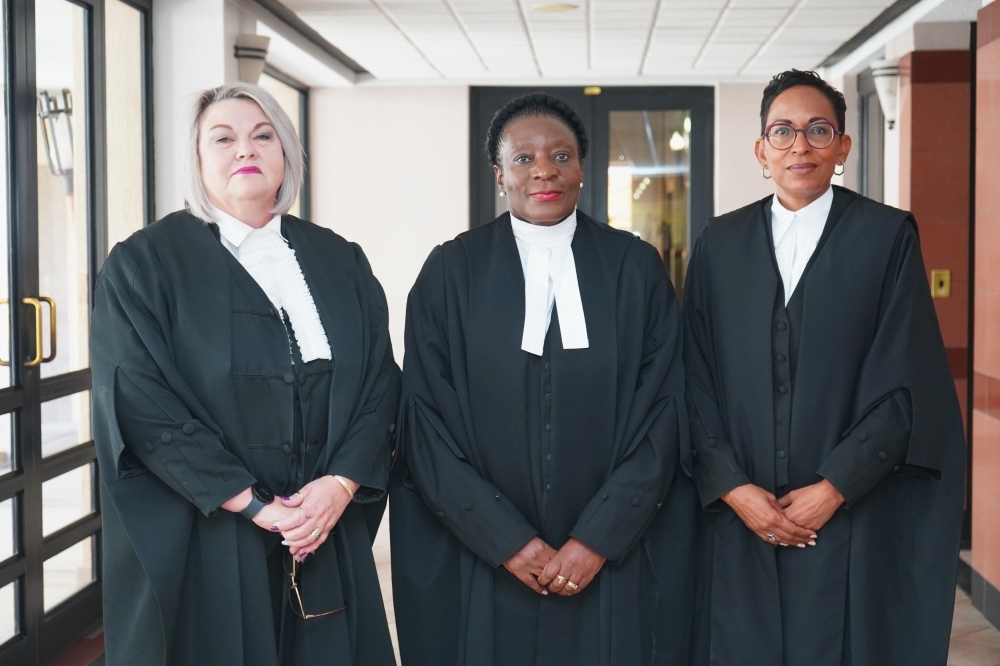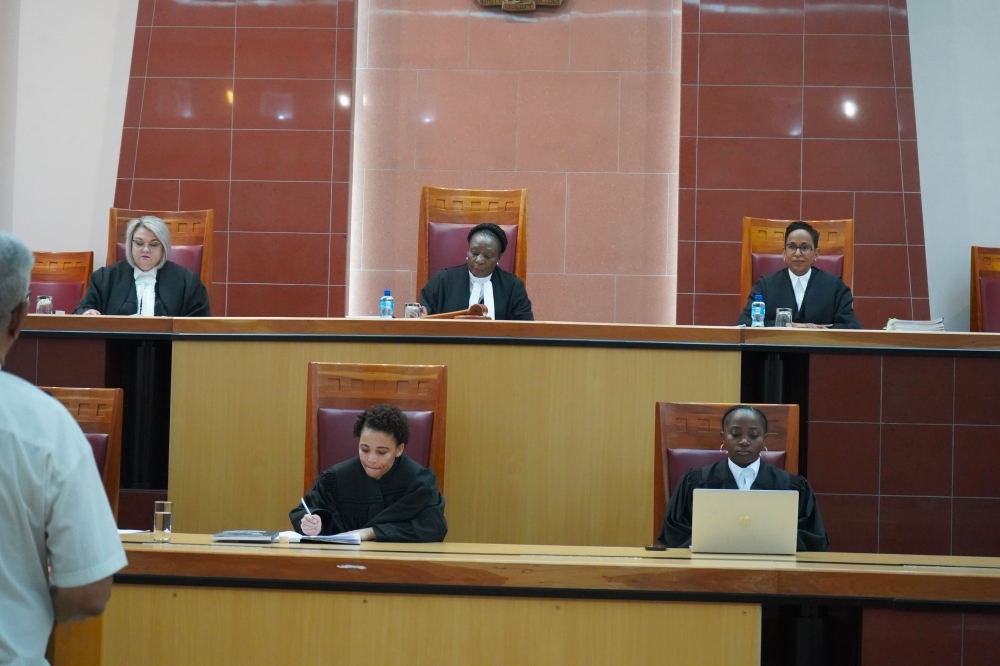Women judges make history
Last week, a full bench of three female judges heard an appeal case in the Windhoek Supreme Court for the first time in Namibian history.Two of the three, Hannelie Prinsloo and Esi Schimming-Chase, are local judges. The trio is completed by Rita Makarau, a Zimbabwean judge who was appointed acting judge of the Supreme Court in June this year.
After Makarua's appointment, the Judicial Service Commission issued a media statement saying that the purpose of her appointment was to act as a mentor for Prinsloo and Schimming-Chase, as she is a seasoned judge.
Judge President Peter Shivute emphasised at the time that the appointment of the women was a deliberate step to promote female representation on the Supreme Court bench.
"The lack of women's representation on the Supreme Court's bench is a source of great concern and the commission has undertaken to address this issue seriously. To this end and to lighten the Supreme Court's workload, the commission decided to recommend the appointment of three acting women judges to serve on the Supreme Court's bench for the period 1 April 2023 to 31 March 2024, ” said the Judicial Service Commission after the women's appointment.
The media was invited to attend last week's proceedings and special permission was granted so that photographs could be taken during the first 10 minutes of the court session.
"This is a historic moment for our jurisdiction, as it is the first time that an all-female Supreme Court bench will hear a case," the office of the judiciary said in its invitation.
The appeal case heard by the three judges was brought by Hewat Beukes against the Namibian president and ten other respondents.
This follows after the registrar of the Supreme Court issued a default judgment order in 2001 against the appellants who were married in community of property and were registered owners of an erf in Khomasdal. The aforementioned default judgment was subsequently followed by a court order which declared the immovable property to be specially executable - which means that it can be sold in execution.
Following the above court order, in 2014 the appellants filed an application with the high court in an attempt to set aside the orders issued by the registrar. However, their application was rejected and therefore they approached the Supreme Court to challenge the decision. – [email protected]




